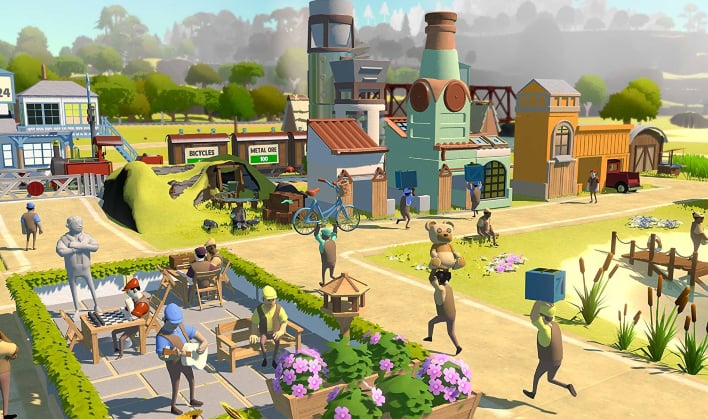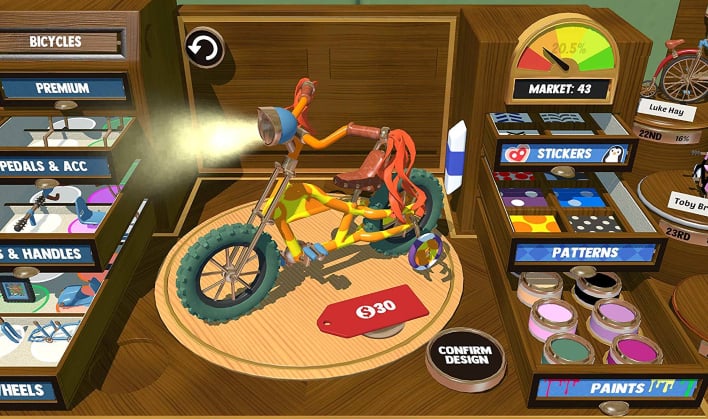Peter Molyneux's Legacy Isn't Out Yet And Has Already Sold $53M In NFT Game Plots

Transactions for in-game content is nothing new in the realm of gaming. Gamers have been spending thousands of dollars on cosmetics in games like Fortnite and Valorant that give them nothing more than a gun that glitters or an outfit that shines in return. But it is the use of things such as NFTs and cryptocurrency that are becoming the new avenue for game developers to explore as an opportunity for them, and the gamers who play, a way to make a return on their investment.
22cans studio has already sold an estimated $53 million of NFTs for its "blockchain business simulator" Legacy, that was first revealed by Molyneux in 2017. The game incorporates its own version of currency based on LegacyCoin, a newly minted cryptocurrency on the Ethereum blockchain. You can become a virtual landlord by investing in imaginary land with the hope of some day making actual money in return. The game itself was not widely known until the announcement was made about the NFT land sale this past Saturday.
Players will be tasked with designing, building and taking care of a company town where the residents work in factories to make the virtual products you invent and sell. Gala Games, the company that owns 22cans, said, "Owning a Land NFT allows you to start your own in-game blockchain business association in Legacy. You will be able to play Legacy, while earning and owning your gameplay."

Before the days of cryptocurrency or NFTs, there was a game that allowed players to make money off virtual purchases. Entropia Universe was launched way back in 2003 by MindArk as a real-economy game. A year after launch, user Deathifier bought a treasure island on Planet Calypso for about $26,500 and within a year had made his money back. Following that success, the MMORPG added new planets and opportunities for players to engage and earn actual cash while they played. With features such as real estate, resorts, pets, malls, and an ATM-style system to cash out in-game earnings. Entrepreneur Jon Jacobs actually mortgaged his home in order to buy a virtual asteroid for $100,000, and then turned that into a profit in 2010 when he sold the upgraded asteroid for $635,000.
Players such as Deathifier and others that have made real money playing games like Entropia Universe set the stage for what we are now seeing with games like Legacy. The concept is pretty much the same, with the major differences being in the use of cryptocurrency and NFTs. Deathifier, whose real name is David Storey, predicted in 2005 that "being an Entropia millionaire (would) happen someday." With land sales being what they are already in Legacy, it is not hard to imagine that those who purchased early will have a decent chance at a good return on their initial investment.
22cans is hoping to have a better fate with Legacy than it did with its first two attempts at game development. Its first game, Godus, was able to raise about $690,000 on Kickstarter before it fell off due to a poor reception of it and a spin-off variant called Godus Wars. After dumping that venture, the company attempted a mobile game called The Trail, but it has not done well due to its microtransactions, glitches, and inability to carry over your purchases when you buy a new phone. Godus is still available in early access on Steam, but has not received an update in over 5 years.
With 22cans' track record it may be surprising that people are seemingly so quick to buy into Legacy. But when you factor in how many people are trying to make a quick fortune from cryptocurrency and NFTs, it becomes more clear as to why. This new trend in finances and gaming seems to be one that people are willing to take a chance on, and that is good news for game developers like 22cans and Peter Molyneux.

